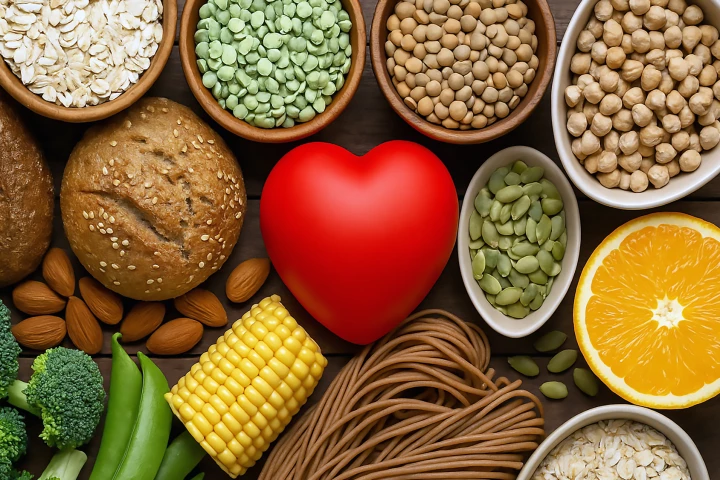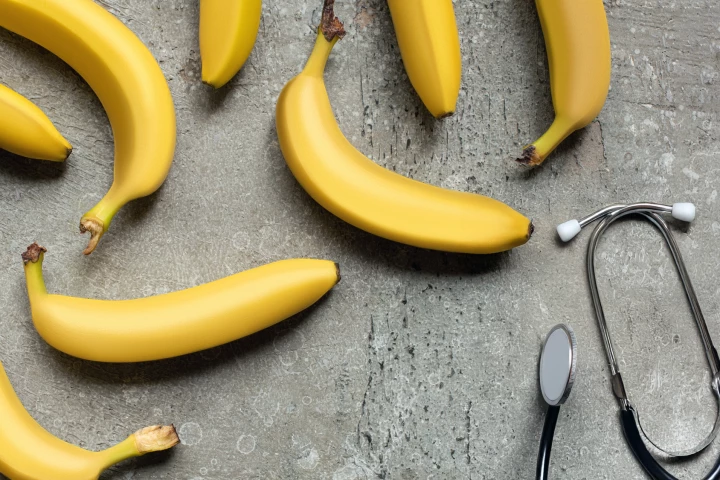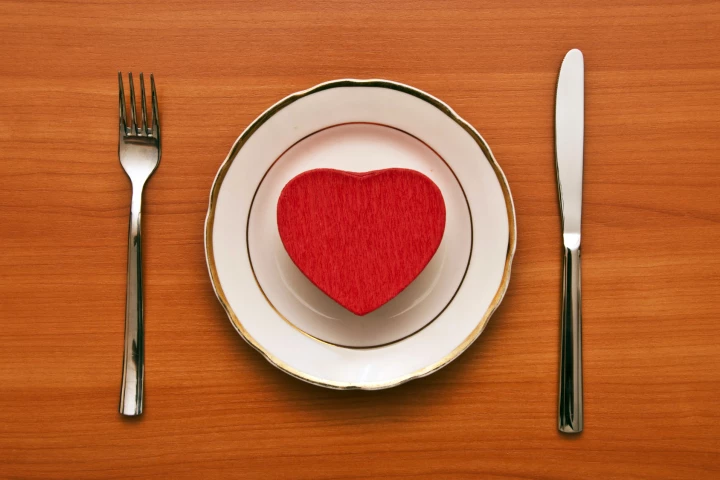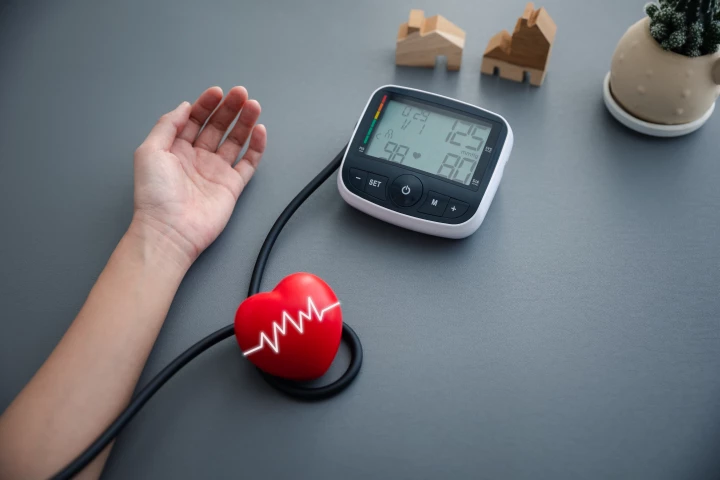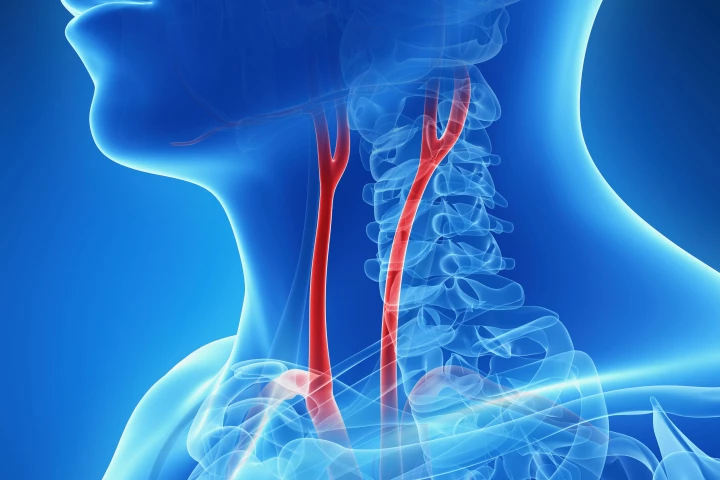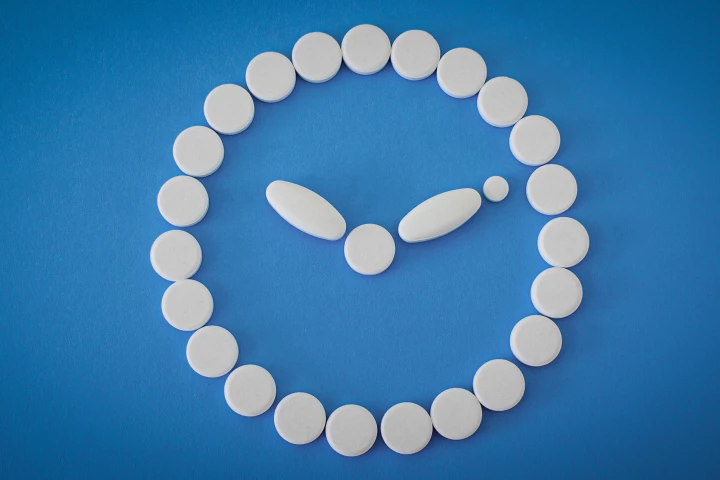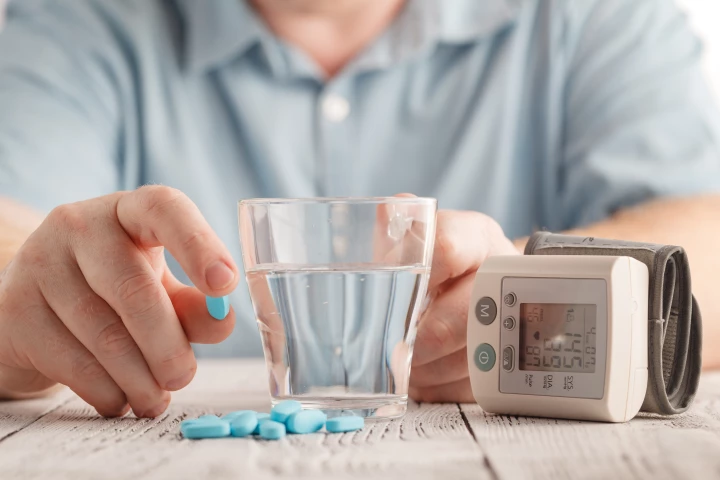Blood Pressure
-
A new study has found that, for most of us, the fiber we eat can protect our heart health, lowering the risk of high blood pressure, heart disease or stroke by up to 20%. It’s more evidence showing that a healthy gut leads to a healthy heart.
-
A sour, tangy cherry most commonly used in baking has a lot of new fans in 2025, celebrating its broad health benefits. We look into its purported ability to relieve pain, gout and gut inflammation, as well as lower blood pressure and promote sleep.
-
While cutting back on salt intake has long been a mainstay in treating high blood pressure, new research suggests that upping potassium intake might have a greater effect. It might be time to stock up on bananas, apricots, and sweet potatoes.
-
Being sedentary at work led to lower blood pressure than standing to work for long periods. The findings are from a new study that also found that prolonged standing can be harmful to the heart and circulation.
-
Finding time to exercise each day is a challenge for many people, but a new study of nearly 15,000 men and women has discovered that adding just five minutes of daily activity that gets your heart rate up is enough to lower your blood pressure.
-
Some kinds of vegetables lower high blood pressure much better than others, according to a new study. The researchers say that the reduction could translate to a 5% reduced risk of major heart events and encourage everyone to eat more greens.
-
In an effort to do the right thing for their health, more than 17 million Americans could actually be getting poor blood pressure readings from at-home kits with ill-fitting cuffs. This can have serious implications for nearly 7% of US adults.
-
Currently, when doctors wish to continuously monitor a patient's blood pressure, they insert a catheter into one of the individual's arteries. There could soon be a safer alternative, however, and it was inspired by the tuning of guitar strings.
-
A class of drugs already used to treat high blood pressure has an added bonus, according to a new study: lowering epilepsy risk by up to 30%. Further research is needed, but the findings suggest there’s a means of preventing epilepsy in at-risk adults.
-
Early birds and night owls should take blood pressure medication at different times of the day to minimize their risk of a heart attack, according to a new study that looked at whether our internal clock affected medication effectiveness.
-
Healthcare workers have urged for a greater duty of care with older adults who start taking common blood pressure medicines, with a study highlighting that they're more than twice as likely to experience fall-related fractures after starting treatment.
-
There's been no guide on how much dietary fiber you need to eat to reduce blood pressure – until now. A new study has confirmed that it has an effect independent of medication and quantifies just how much is needed to directly impact high blood pressure.
Load More
